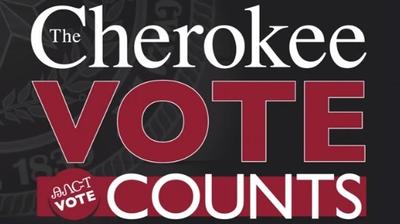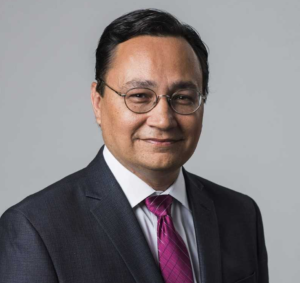
- Details
- By Native News Online Staff
Guest Opinion
During this COVID-19 emergency, we are all doing our best to self-distance, avoid getting sick, and slow the spread of this terrible virus. At Cherokee Nation, we are slowly reopening businesses and governmental offices while still utilizing telework principles to keep everyone safe to accomplish the essential work of our tribal government.
I hope you will join me in bringing that same approach to the important decisions we have before us as voters in the great state of Oklahoma. On June 30, the state will hold elections to decide many state and federal primaries, as well as voting on State Question 802 to make sure that Oklahomans are able to get health care.
 Cherokee Nation Principal Chief Chuck Hoskin, Jr.
Cherokee Nation Principal Chief Chuck Hoskin, Jr.
Making our voices heard on the ballot is critical work. With government leaders at all levels making life-and-death decisions about how to respond to COVID-19, and with State Question 802 potentially bringing home billions in federal tax dollars to care for Oklahomans, this election will be one of the most important we have seen.
To accomplish the essential work of voting while keeping safe, our best option may be to request an absentee ballot to vote by mail. The deadline to request an absentee ballot has passed, but for those who have already requested one, the state has provided additional options to vote absentee during the health emergency. Instead of getting your ballot notarized, you can mail it with a photocopy of your photo ID. A copy of your Cherokee Nation photo ID will work for this purpose. If you do not have access to a photocopier, you can even mail in your voter ID card and then request a new one from the State Election Board.
While the photocopy option is temporary during the state of emergency, state lawmakers should consider making it permanent, along with other ways that make voting easier for Oklahomans. The state could extend the time for early voting or raise the cap on the number of ballots allowed per notary. I hope our state will consider these and any other measures that make it easier for Oklahomans to exercise their right to vote without ever putting their health at risk.
If you are not in one of the most at-risk groups for COVID-19, you may be able to help by working at a polling place. In the past, many of our polling place workers have been elders who need to take extra precautions right now and may not be able to help. As a result, poll workers are in high demand. You can check with your local county election board to find out how to help.
No matter how you decide to vote in the June 30 election, I urge everyone to stay respectful, keep our distance from each other, wear masks, and wash our hands before and afterwards. With the right precautions, we can make sure that this virus does not prevent anyone’s essential right to participate in our democracy.
Chuck Hoskin, Jr. is the principal chief of the Cherokee Nation.
More Stories Like This
Native News Weekly (August 25, 2024): D.C. BriefsNavajo Nation Mourns the Passing of Former Vice President Rex Lee Jim
Deb Haaland Earns Endorsement From Communications Workers of America Local 7076
University Soccer Standout Leads by Example
Two Native Americans Named to Democratic Congressional Campaign Committee's“Red to Blue” Program
Help us defend tribal sovereignty.
At Native News Online, our mission is rooted in telling the stories that strengthen sovereignty and uplift Indigenous voices — not just at year’s end, but every single day.
Because of your generosity last year, we were able to keep our reporters on the ground in tribal communities, at national gatherings and in the halls of Congress — covering the issues that matter most to Indian Country: sovereignty, culture, education, health and economic opportunity.
That support sustained us through a tough year in 2025. Now, as we look to the year ahead, we need your help right now to ensure warrior journalism remains strong — reporting that defends tribal sovereignty, amplifies Native truth, and holds power accountable.
 The stakes couldn't be higher. Your support keeps Native voices heard, Native stories told and Native sovereignty defended.
The stakes couldn't be higher. Your support keeps Native voices heard, Native stories told and Native sovereignty defended.
Stand with Warrior Journalism today.
Levi Rickert (Potawatomi), Editor & Publisher

